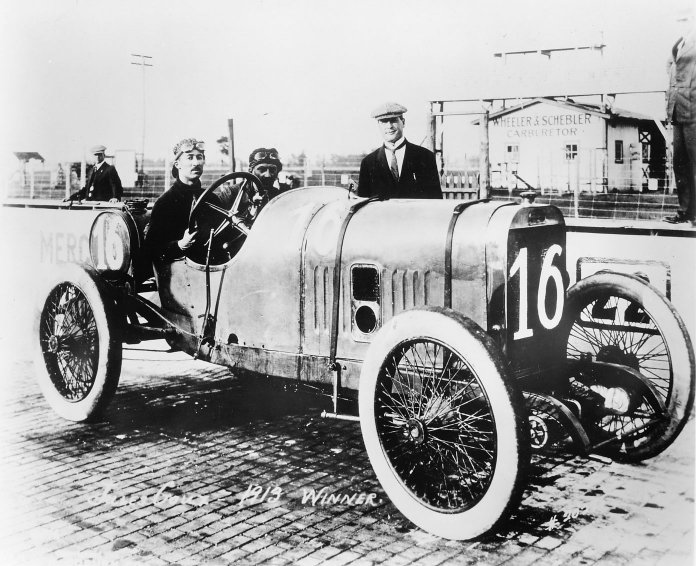French automaker Peugeot is celebrating the 125th anniversary of its first entry into auto racing. The company got off to a great start, winning the Paris-Bordeaux-Paris race in its inaugural effort on June 11-14, 1895.
“The landmark anniversary also coincides with the original dates of this year’s postponed 24 Hours of Le Mans endurance race – a competition Peugeot has won on three occasions,” the company said in its celebratory news release.
“In 2022, Peugeot will return to endurance racing and look to write the next chapter of its motorsport story.”
The company noted that, “Since the 3.7 horsepower Type 7 triumphed in 1895, Peugeot has tasted success across the globe, competing with distinction everywhere from frozen world rally stages in Scandinavia, the towering dunes of the Dakar and even the high-altitude challenge of the Pikes Peak International Hill Climb.
Here is the Peugeot motorsports timeline as reported by the automaker:
1895: A Type 7 Peugeot wins the 1895 Paris-Bordeaux-Paris race on 13 June, which is considered to be the first-ever car race in history. Arriving initially in third place, the 1.3-liter, 3.7 bhp Type 7, driven by Paul Koechlin, was declared winner after the first two vehicles were found to be in breach of the competition rules. Koechlin completed the 1,178 km (731 mile) race in 59 hours and 48 minutes.
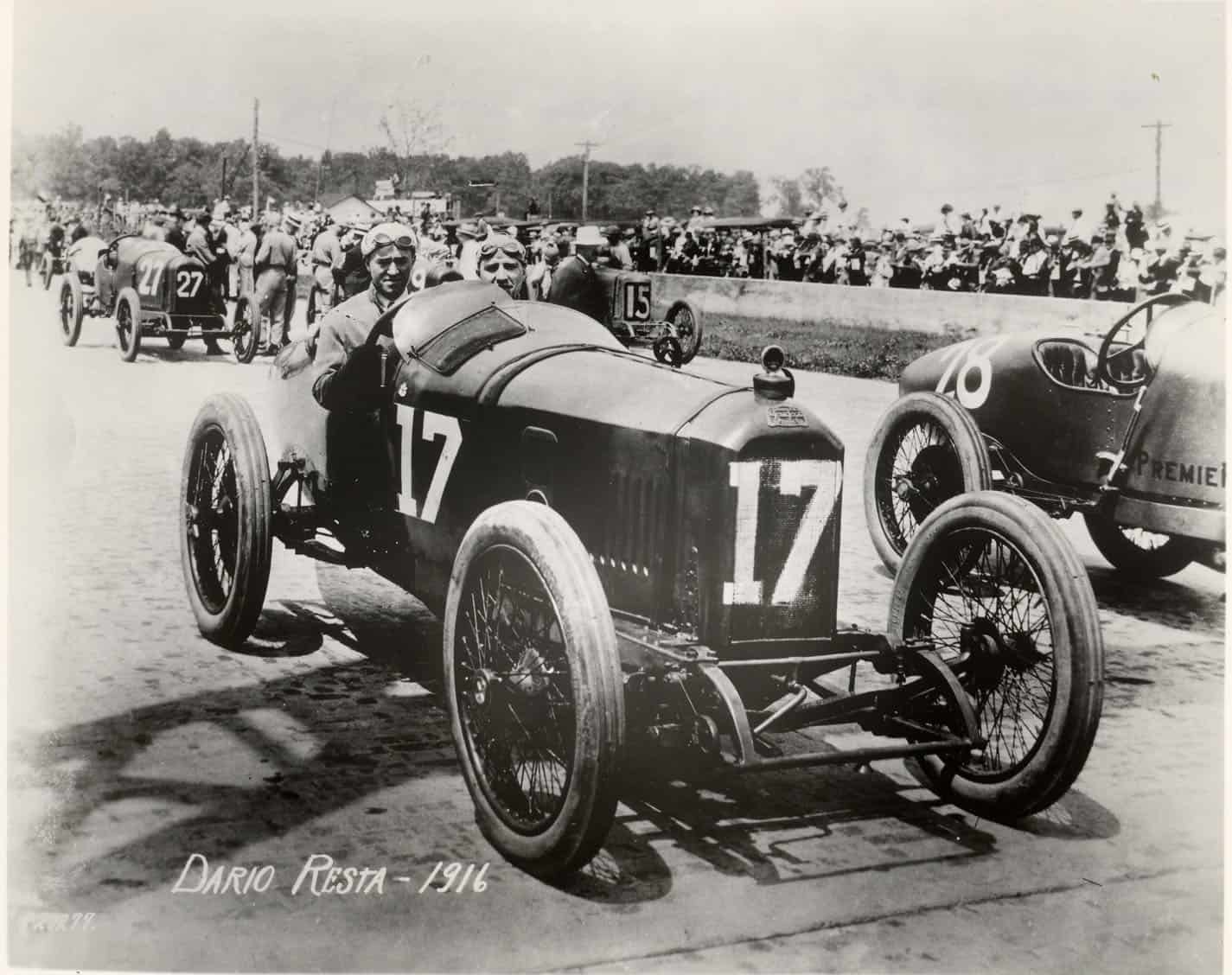
Dario Resta gave Peugeot another victory in 1916 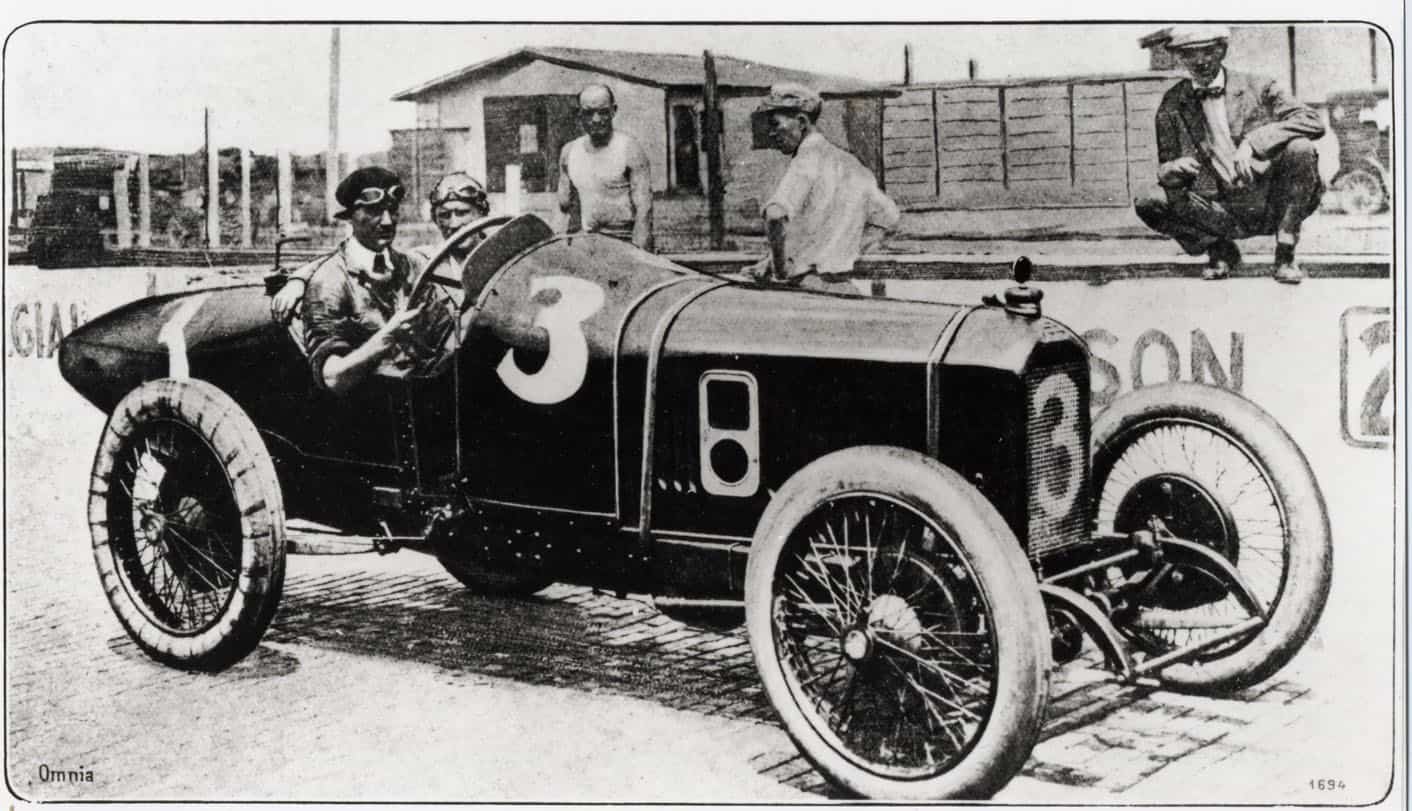
Howdy Wilcox won for Peugeot again in 1919
1912-19: Peugeot became a three-time Indy 500 winner between 1913 and 1919. French racing driver Jules Goux won the Indy 500 in 1913, becoming the first person outside the United States to win the race – clocking an average speed of 75.933 mph at the 200-lap race.
Peugeot also won the race in 1916 and 1919. In 1912 and 1913, Peugeot won the Grand Prix de l’Automobile Club de France.
The 1960s: The Peugeot 404 became a quadruple winner of the East African Safari Rally, taking the wins in 1963, 1966, 1967 and 1968. Due to the difficult conditions in both 1963 and 1968, only seven vehicles made it to the finish – representing just eight per cent of the field – earning them all the nickname of the “Unsinkable Seven.”
The 1970s: Peugeot secured its status as a rally icon in the 1970s. In 1975, the Peugeot 504 won the Safari Rally, Rallye du Maroc and the Bandama Rally. The following year, the 504 won the Rallye du Maroc and Bandama Rally once more. In 1978, piloting a 504 Coupé V6, Jean-Pierre Nicolas won the Safari Rally for a third time in the decade for Peugeot, with the brand also clinching the Ivory Coast Rally.
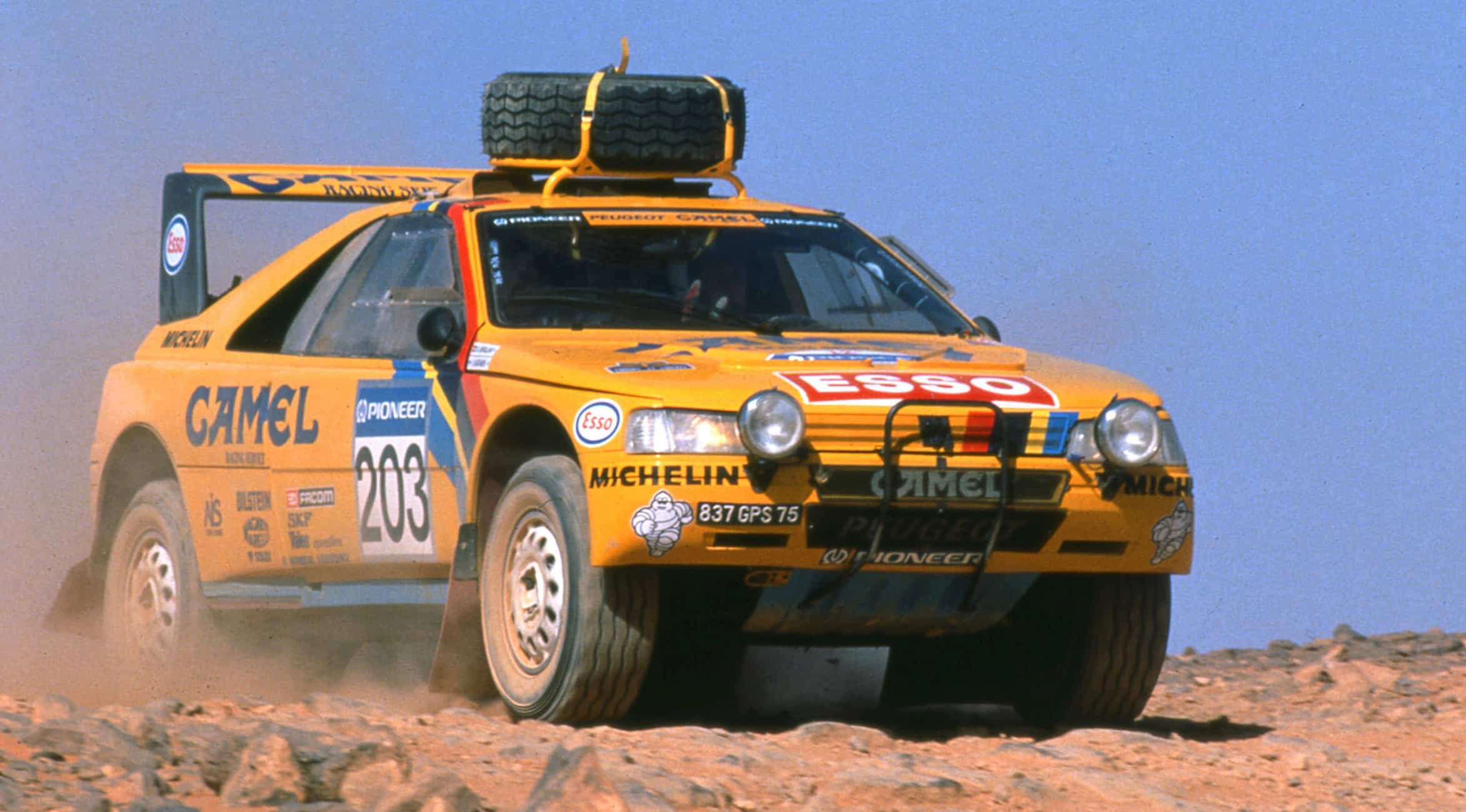
The 1980s: The 1980s were the heydays of rallying thanks to the iconic Group B era. During this period, Peugeot tasted success thanks to a number of Finnish rally aces and one brilliant car. The Peugeot 205 T16 became a legend in the hands of Timo Salonen and Juha Kankkunen, winning the drivers and manufacturers championship in 1985 and 1986. The turbocharged 205 T16 was one of the most successful cars of the Group B era.
Peugeot also conquered the punishing Paris-Dakar Rally four times between 1987 and 1990 with the 205 T16 and the 405 T16 in the hands of Finnish drivers Ari Vatanen and Juha Kankkunen.
Peugeot won the Pikes Peak International Hill Climb in Colorado in 1988 and 1989. The 405 T16 piloted by Ari Vatanen in 1988 was captured in the film Climb Dance, which has achieved cult status among motorsport enthusiasts.
The 1990s: In 1992, Peugeot won the legendary 24 Hours of Le Mans endurance race for the first time, with the 3.5-litrer V10 905, piloted by Derek Warwick, Yannick Dalmas and Mark Blundell. The following year, the Peugeot Talbot Sport team achieved a podium lockout with the 905.
Peugeot also starred in a number of domestic championships, winning two drivers’ titles in the French Rally Championship with the 306 Maxi, while the 406 won the German Super Touring Championship in 1996.
The 2000s: In the early noughties, Peugeot returned to the top steps of the World Rally Championship. Piloting the 206 WRC, Finnish rally legend Marcus Grönholm won two drivers’ championships in 2000 and 2002, with Peugeot taking three constructors titles between 2000 and 2002. In 2005, Nicolas Bernardi won the French Rally Championship in a Peugeot 206 WRC.
Peugeot continued to celebrate at Le Mans – the groundbreaking 908 HDi FAP used a 5.5-liter V12 twin-turbo diesel engine to win the 2007 Le Mans Series. The use of HDi diesel technology for improved fuel economy and performance has since made its way into Peugeot’s road car range. In 2009, the 908 HDi FAP took a one-two win at Le Mans 24 Hours.
Having left the World Rally Championship at the end of 2005, Peugeot switched its focus on the newly created Intercontinental Rally Challenge the following year. Peugeot dominated the championship between 2007 and 2009, with Kris Meeke winning the title in 2009 piloting a Peugeot 207 S2000.
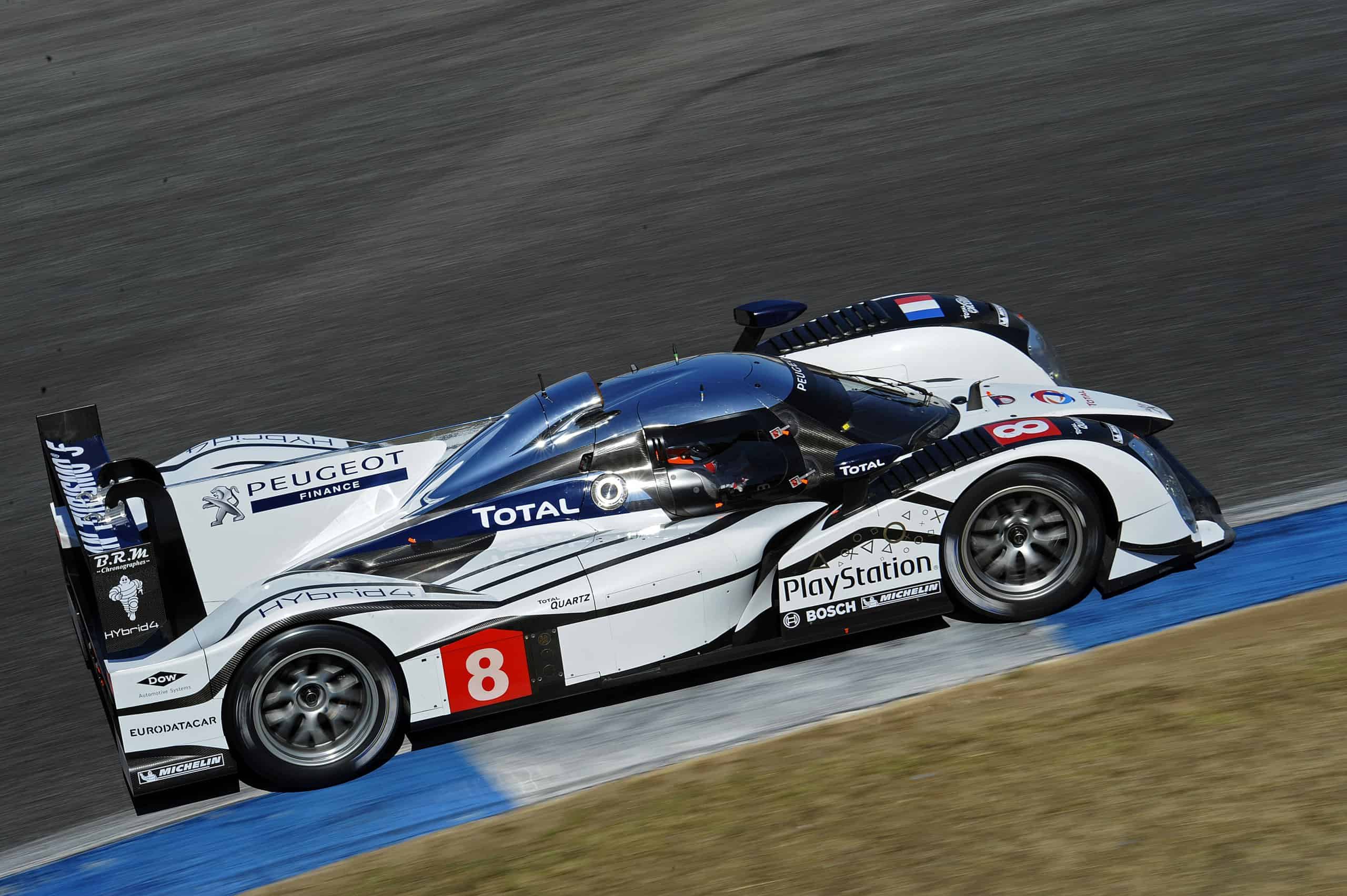
The 2010s: Peugeot started the new decade by winning the Intercontinental Le Mans Cup in both 2010 and 2011, with the 908 HDi FAP continuing its domination on international race tracks. In 2011, Peugeot won five of the seven races that made up the Intercontinental Le Mans Cup. Peugeot also notched up the 2010 Le Mans Series with the 908 HDi FAP.
2011 was the last year the 908 HDi FAP raced due to regulation changes, with the World Endurance Championship succeeding the International Le Mans Cup from 2012 onwards.
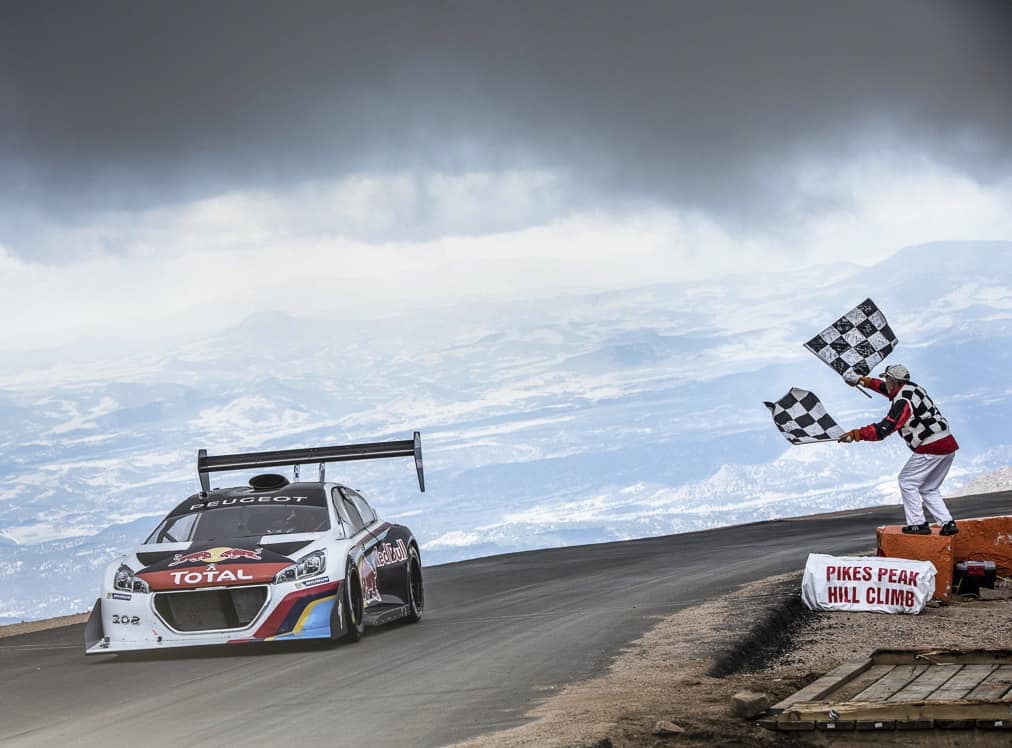
In 2013, the French automaker returned to the Pikes Peak International Hill Climb in Colorado. In association with Red Bull, Peugeot built a bespoke vehicle for the Unlimited Class – the 875 horsepower 208T16 that weighed only 875 kilograms. Piloted by French rally legend Sebastien Loeb, the car broke the previous class record of 9m46.164s by more than a minute, with a time of 8m13.878s.
In 2015, the World Rally Cross Championship was added to the Peugeot trophy cabinet after Team Peugeot-Hansen won the constructor’s championship with the Peugeot 208 WRX.
A year later, Peugeot returned to the legendary Dakar with the 2008DKR, driven to victory by Stephane Peterhansel and his co-pilot Jean-Paul Cottret, winning the 2016 event.
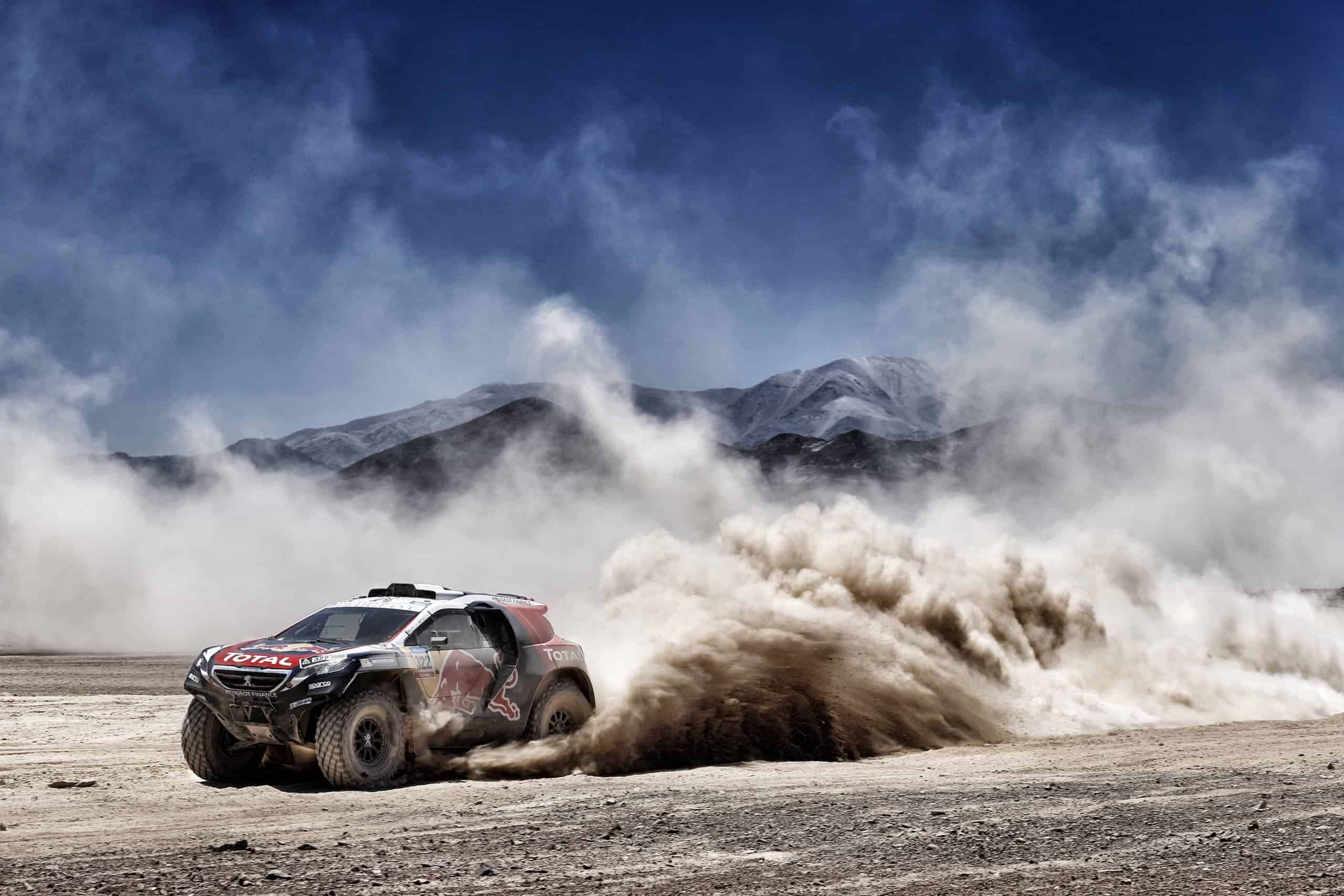
The company continued its Dakar Rally success the following year with an all-new 3008DKR, powered by a 3.0-liter twin-turbo V6 HDi diesel engine, producing 360 horsepower and 800Nm of torque. Stephane Peterhansel took his 13th career win at Dakar behind the wheel of the 3008DKR, with the 3008DKR also winning the Silk Way Rally, which ran from Moscow, Russia, through Kazakhstan, and ended in China.
The 8008DKR won again in 2018, this time with rallying legend Carlos Sainz behind the wheel for his third Dakar career victory.
The 2020s: This new decade will see the launch of the Peugeot Sports neo-performance range, starting with the 508 Sport Engineered, a new low-emission hybrid that delivers outstanding performance, together with sharp and athletic styling. In 2022, Peugeot plans to return to Le Mans.



